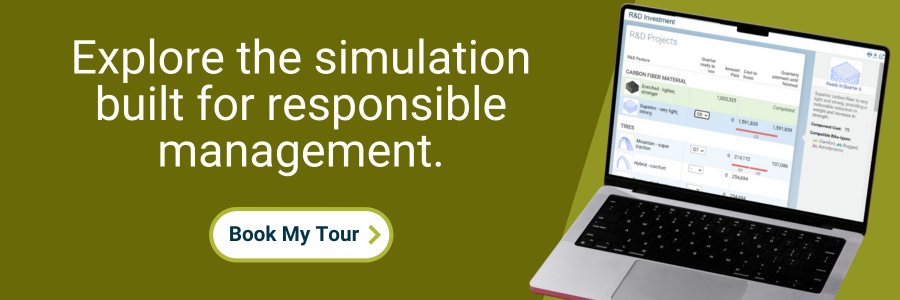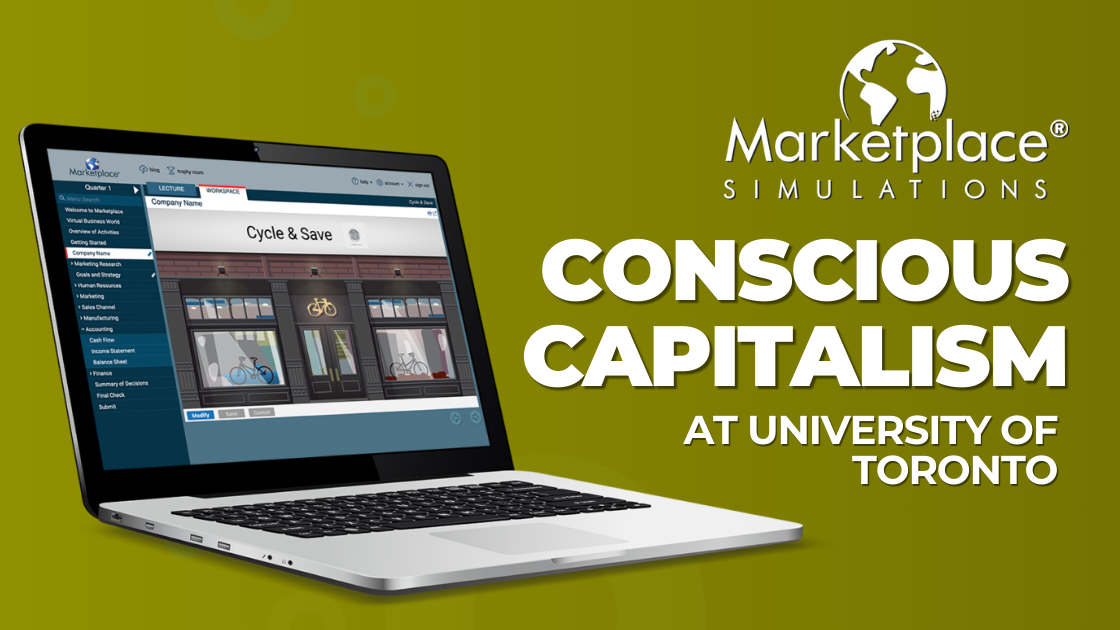Conscious Capitalism ‘Gets It Done’ at University of Toronto
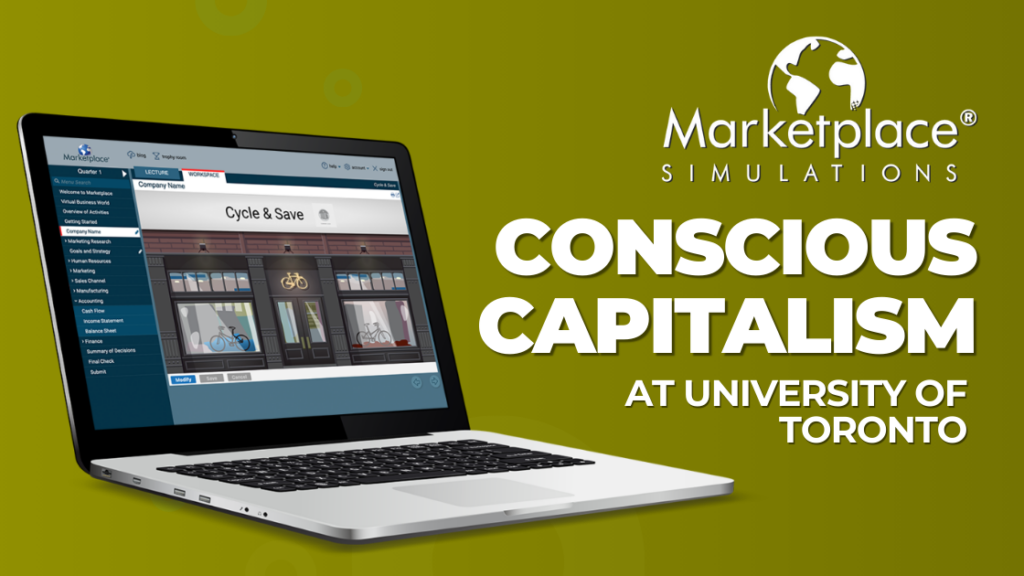
Today’s students are passionate about responsible management principles. Yet, without practical experience, graduates can struggle to apply these principles consistently.
As Dr. John O’Dwyer tells his students at the University of Toronto, “You’re going to have lots of balls in the air, people, and you’re going to drop some of them. Hopefully, they’re not the important ones.”
In his award-winning MBA course, GettingItDone, O’Dwyer teaches students the essentials of leadership. This includes how to reach social responsibility goals. The Conscious Capitalism game by Marketplace Simulations has become a critical tool in that effort.
Throughout the 10-day intensive, students learn how to use 30 leadership tools. The business simulation allows them to implement those tools immediately.
“It is a doing course, not a memorizing course, and that’s why the simulation is so important,” O’Dwyer says.
Inside the Conscious Capitalism Simulation
The Conscious Capitalism Simulation is a cross-functional, competitive business game. Students work as teams to build new companies. Their goal is to win market share while benefitting all stakeholders.
Designed with Conscious Capitalism, Inc., the simulation demonstrates the nuances of responsible management. Students encounter challenges in worker health, product safety, environmental impact, and more. As in real life, however, they have limited resources to put toward each area.
Students must reflect on their goals and the sacrifices each one requires. With each decision round, they adjust their strategies to fit a changing market.
“It’s a brilliant tool,” O’Dwyer says.
O’Dwyer and his co-instructor, Kelly Murumets, leave students to their own devices for the first three days of the simulation. Students are free to experiment and make mistakes. On the fourth day, O’Dwyer and Murumets begin introducing leadership tools to help students recover.
The effect is, as one student said, “Absolutely transformational. The format and delivery of the course allow us to get deep understanding of the material and ourselves.”
Other students overwhelmingly agree. The GettingItDone course is one of the highest-rated courses at University of Toronto’s Rotman School of Management. At 24 years old, it’s also Rotman’s longest-running course.
Deeper Than Case Studies
O’Dwyer’s course hasn’t always included a business simulation. When the class started in 2001, students conducted case studies with companies instead.
The assignment provided valuable insights, but it had critical limitations. Students only learned vicariously, trusting interview subjects to provide accurate information and insights.
That changed when O’Dwyer turned the course into a 10-day intensive. There wasn’t enough time for company interviews, so O’Dwyer began researching business simulations. He found Marketplace Simulations in 2014.
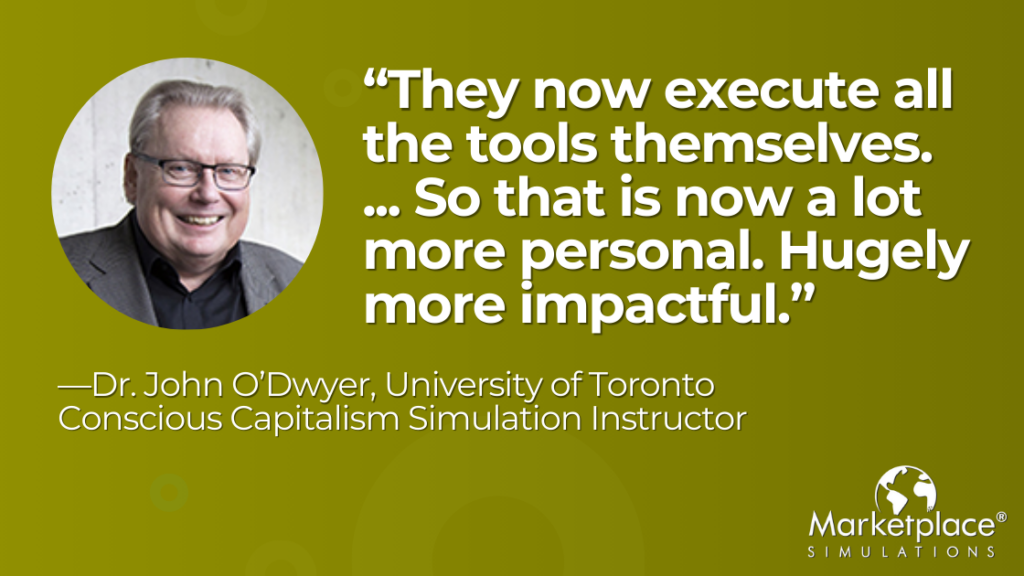
“They now execute all the tools themselves … So that is now a lot more personal,” O’Dwyer says. “Hugely more impactful.”
In 2022, O’Dwyer began using Marketplace’s Conscious Capitalism simulation because of its focus on social responsibility.
“It’s just doing what’s right, period. To me, there’s no decision,” O’Dwyer says.
The students embraced the deeper focus on social responsibility. One team even named themselves after the UN’s Sustainable Development Goals.
Committing to Change
As students play the Conscious Capitalism Simulation, many reflect on how they can do business differently. Their final assignment in O’Dywer’s class is a presentation on what they commit to do in the first six months of their next job.
“We had people in tears this year and last year,” O’Dwyer says.
As these students return to their jobs and start new ones, their ability to impact the world is profound. Having already put their lessons into practice, they have a new sense of what they can accomplish—and the right tools to get it done.
Show your students what they can accomplish as responsible managers. Explore the Conscious Capitalism Simulation.
